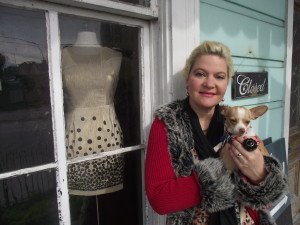Room to Bloom by Nevada McPherson
 Let’s welcome back monthly columnist Nevada McPherson as she shares with us “Room to Bloom.” Enjoy!
Let’s welcome back monthly columnist Nevada McPherson as she shares with us “Room to Bloom.” Enjoy!
***
When you sit down to create a novel, graphic novel, screenplay, or any other piece of writing, chances are you have a purpose in mind—an idea to get across, or just characters and a story to share with the world. They leap from your mind to the screen, to the page, and then what? Are they still yours? Yes—and no!
If creative projects are like children (in the Chinese art of placement, feng shui, the same gua or area of a space related to children is also related to creative projects), as writer/parents we can raise, nurture and discipline them, try to mold them to the best of our ability and then one day we dress them up, make sure they look their best and send them out to navigate life on their own. Without us there at every turn to explain our “children’s” actions, to apologize for any misbehavior, defend them, etc. others who meet them will make their own judgements.
Here we must come to terms with the intentional fallacy, the fact that what we intended readers to draw from our work, to make of our work, and what it actually means to them are very often two different things. If our heretofore well-behaved “children” are perceived as unruly when released from our control, that’s –well—out of our control. We hear reports of how our “children” are doing out there: through reviews, comments from friends and family, and social media posts, and we’re surprised at how others see them. Sometimes it’s delightful news that makes its way back to us, and sometimes it might be bewildering, but it’s what happens when one takes the leap into creating something new (like the little Charley Chaplin man in Lawrence Ferlinghetti’s poem “Constantly Risking Absurdity”).
I’ve heard people talk about writing something and never wanting to send it out for fear that someone might steal it, or others might not like it, etc. As much as we care about our projects, even the most difficult ones that nearly drive us mad, like that unruly child whose behavior can be appalling at times but we never stop loving them, there comes a time to let them go. How can we grow as writers if we don’t take chances? How can our characters stand on their own and take shape in others’ minds, hence start living lives of their own if we aren’t willing to let them out of our protection?
I finished a major rewrite of a lengthy project recently and found that after working on it so intensely every day, when I finally saw it as complete, the best that I could make it for the time being—I had a kind of let-down feeling that could best be described as empty-nest syndrome. Yes, it happens, but compared to the feeling of never letting it go, I’d prefer this any day! I’ll get over it, and it’s the only way to move forward.
Until next month—happy writing!
***
ABOUT THE AUTHOR
Originally from Georgia, Nevada McPherson lived in New Orleans for many years and now lives with her husband Bill and rescue Chihuahua, Mitzi in Milledgeville, Georgia, where she is a professor of Humanities at Georgia Military College. Nevada received a BA in English/ Creative Writing and an MFA in Screenwriting from L.S.U. She’s written over a dozen feature-length screenplays, one short screenplay, a short play, short stories and two graphic novels, Uptowners and Piano Lessons.
For more information about Nevada and her projects, visit www.nevada-mcpherson.com.







